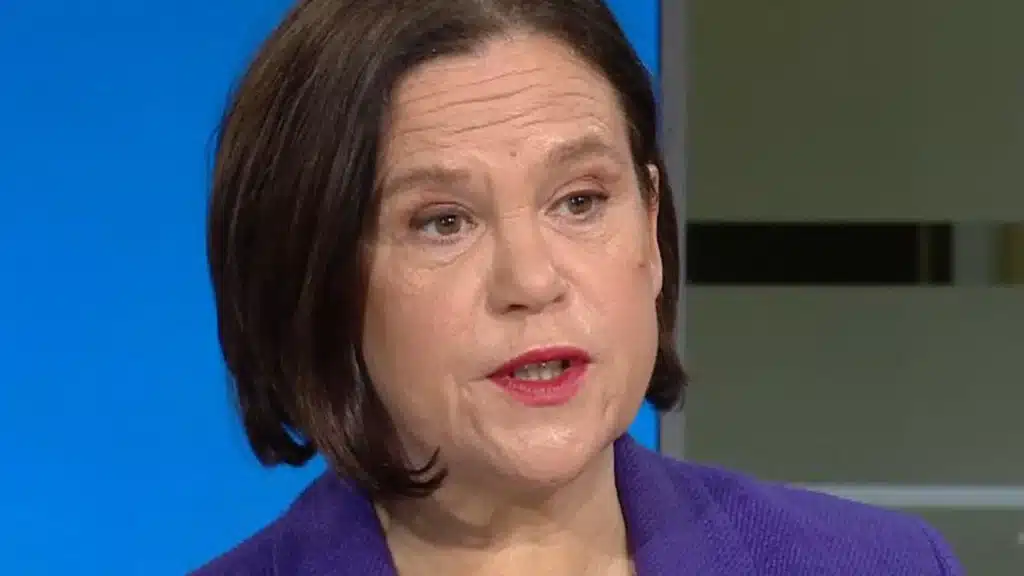Mary McDonald Predicts Irish Unification Referendum by 2030

Sinn Fein President Mary Lou McDonald has reiterated her party’s commitment to holding an Irish Unification referendum by 2030. Speaking to Sky News, McDonald emphasised that the prospect of unification is becoming increasingly tangible, particularly with Sinn Fein now leading the largest caucus in Belfast’s Northern Ireland executive.
(Also read Places to celebrate the Lunar New Year 2024 in Dublin.)
The goal of Irish unity has gained pace with the return of the power-sharing government in Northern Ireland, led by Sinn Fein’s Michelle O’Neill. McDonald acknowledged the significant progress made but also stressed that there remains much work to be done in persuading people of the opportunity presented by reunification.
The Roadmap to an Irish Unification Referendum by 2030
McDonald’s assertion of a unification referendum within the next six years aligns with the framework outlined in the Good Friday Agreement. This historic agreement allows for a referendum in Northern Ireland if it becomes apparent that a majority of voters wish to see the region join the Republic of Ireland.

However, there are procedural complexities surrounding the mechanics of such a vote. Although the agreement outlines a process for a referendum in Northern Ireland, the Republic of Ireland lacks a corresponding framework for conducting a referendum. Rather, it states that if Northern Ireland decides to join, at least two referendums would be required: one to establish the reunification principle and another to change the Republic’s constitution.
The prospect of Irish unification raises significant questions about the future of both nations and their relationship with the United Kingdom. McDonald emphasised the importance of fostering strong ties with Britain, highlighting the need for cooperation and friendship between neighbouring countries.
The road to Irish unification is undoubtedly paved with challenges, including political negotiations, public opinion, and the intricacies of constitutional processes. However, Sinn Fein’s commitment to pursuing a referendum by 2030 signals a renewed momentum toward addressing these challenges and realising the long-held aspiration of a united Ireland.
As the political landscape evolves and discussions around Irish unification continue, the coming years will undoubtedly be crucial in shaping the future of Ireland and Northern Ireland, as well as their relationships with each other and the wider international community.
LATEST NEWS
DISCOVER MORE






